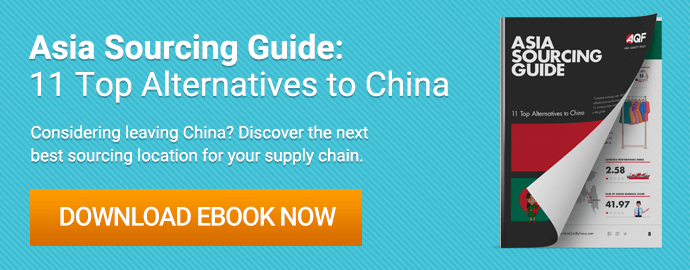 Quality control services ensure products meet predefined standards of quality – and in any industry, maintaining high-quality standards is paramount for success. Many businesses initially prefer internal quality control teams for several reasons, including proximity and availability. However, many factors, like budgeting, talent availability, and others, may soon make outsourcing appealing.
Quality control services ensure products meet predefined standards of quality – and in any industry, maintaining high-quality standards is paramount for success. Many businesses initially prefer internal quality control teams for several reasons, including proximity and availability. However, many factors, like budgeting, talent availability, and others, may soon make outsourcing appealing.
Indeed, outsourcing quality control to a trusted third party is a strategic move that can significantly elevate your business operations. It safeguards customer satisfaction and upholds your brand's reputation, preventing costly mistakes such as casting defects and more.
This is why this type of outsourcing has emerged as a pivotal solution. It involves partnering with specialized experts who meticulously inspect and evaluate products, ensuring they meet the highest benchmarks and establishing enhanced efficiency and customer trust.
Why Outsource Quality Control Services?
First and foremost, let us establish why this process deserves your consideration. Indeed, outsourcing quality control services offers a range of compelling reasons for businesses to consider.
Firstly, it provides a substantial boost to cost efficiency. According to findings from usantini.com, businesses can improve their cost efficiency by as much as 50% through this process. This cost-saving advantage arises from eliminating in-house expenses related to hiring, training, and maintaining a dedicated quality control team.
Secondly, outsourcing grants access to a pool of specialized expertise. Partnering with a quality control service provider means tapping into a team of professionals with in-depth knowledge and experience in evaluating and ensuring product quality. This expertise is often difficult and costly to develop in-house.
Thirdly, outsourcing quality control to a reputable third party offers a significant geographical advantage by granting access to a vast global network of experts. These service providers typically maintain teams strategically positioned in key manufacturing hubs across various countries. This aligns seamlessly with the prevailing trend of diversified sourcing, ensuring adaptable and robust quality control measures regardless of the location of the production line. This global reach enhances the capacity to monitor and maintain stringent quality standards, ultimately improving overall product quality and customer satisfaction.
Lastly, it allows  businesses to concentrate on their core competencies. Instead of diverting valuable time and resources toward quality control, companies can focus on their primary operations, thereby driving innovation and growth. By leveraging the proficiency of external quality control experts, businesses can streamline their processes, enhance product quality, and ultimately achieve greater success in their respective industries.
businesses to concentrate on their core competencies. Instead of diverting valuable time and resources toward quality control, companies can focus on their primary operations, thereby driving innovation and growth. By leveraging the proficiency of external quality control experts, businesses can streamline their processes, enhance product quality, and ultimately achieve greater success in their respective industries.
The Benefits of Outsourcing Quality Control Services
With the overview in order, let us now delve deeper into individual advantages that warrant consideration. In no particular order of importance, consider the main ones that follow.
#1 Ensuring Consistency
Initially, it plays a pivotal role in ensuring consistency within a business. At its core, it brings about the standardization of processes. External quality control experts meticulously follow established protocols, ensuring each product is evaluated against the same stringent criteria. This consistency in evaluation leads to a uniform level of quality across the board and shows a robust quality control system.
Moreover, outsourcing helps in reducing human error. While humans are inherently capable, they can sometimes make mistakes due to factors like fatigue or oversight. By entrusting quality control to specialized professionals who are highly trained and experienced in the task, businesses can significantly minimize the likelihood of errors. This results in a more reliable and consistent product output, ultimately bolstering the reputation and trustworthiness of the brand in the eyes of customers.
#2 Enhanced Flexibility and Scalability
Second, outsourcing control services brings enhanced flexibility and scalability to businesses. It allows companies to adapt swiftly to fluctuating workloads. During peak times or unexpected surges in production, external quality control experts can step in seamlessly to manage the increased demand. This ensures that product quality remains consistent even under pressure.
 Additionally, outsourcing is inherently a valuable tool for meeting seasonal demands. Industries often experience seasonal variations in production volumes, requiring an agile approach to quality control. By partnering with specialized providers, businesses can easily scale their quality control efforts up or down according to the needs of the season. This level of adaptability improves overall operational efficiency and helps companies navigate through the peaks and troughs of their industry, ensuring that quality standards are consistently met.
Additionally, outsourcing is inherently a valuable tool for meeting seasonal demands. Industries often experience seasonal variations in production volumes, requiring an agile approach to quality control. By partnering with specialized providers, businesses can easily scale their quality control efforts up or down according to the needs of the season. This level of adaptability improves overall operational efficiency and helps companies navigate through the peaks and troughs of their industry, ensuring that quality standards are consistently met.
#3 Improved Productivity and Time Management
On the subject of seasonal demands, this process also leads to improved productivity and efficient time management for businesses. It enables a streamlined workflow by delegating the responsibility of quality assessment to specialized professionals. This means that each product undergoes thorough evaluation without causing bottlenecks or delays in production.
Additionally, outsourcing results in faster turnaround times. With a dedicated team focused solely on quality control, the assessment process becomes more efficient and timely. This means products can be released to market quicker, which is crucial for staying competitive and meeting customer demands. By integrating this outsourcing, businesses can maximize their resources, ensuring that both time and productivity are maximized to achieve the best possible outcomes.
#4 Access to Advanced Technology and Tools
Fourth, and very notably, it also offers businesses access to advanced technology and cutting-edge tools. Needless to say, this is a crucial advantage in today's rapidly evolving industries. Companies can stay at the forefront of industry standards by partnering with specialized providers. These experts have the latest technological advancements, ensuring products meet the most up-to-date quality benchmarks.
Moreover, outsourcing  enables cost-effective technological implementation. Instead of bearing the expenses associated with acquiring and maintaining specialized equipment in-house, businesses can leverage the resources of their outsourcing partner. This means they can benefit from state-of-the-art technology without the hefty upfront investment. This strategic approach ensures top-notch quality control and allows businesses to allocate resources more efficiently, ultimately contributing to improved overall performance and competitiveness in the market.
enables cost-effective technological implementation. Instead of bearing the expenses associated with acquiring and maintaining specialized equipment in-house, businesses can leverage the resources of their outsourcing partner. This means they can benefit from state-of-the-art technology without the hefty upfront investment. This strategic approach ensures top-notch quality control and allows businesses to allocate resources more efficiently, ultimately contributing to improved overall performance and competitiveness in the market.
#5 Mitigating Risks and Ensuring Compliance
In addition, it is a powerful tool for mitigating risks and upholding regulatory compliance in business operations. Specialized providers are well-versed in the intricate landscape of industry regulations and standards. They meticulously assess products to ensure they meet all necessary compliance criteria. This rigorous approach safeguards businesses from potential legal issues and penalties arising from non-compliance.
Furthermore, it significantly reduces the likelihood of product recalls. Through thorough evaluation, potential defects or issues can be identified and rectified early in production, preventing faulty products from reaching the market. This protects the brand's reputation and saves substantial costs associated with recalls. By entrusting quality control to experts, businesses can confidently navigate the regulatory terrain, ensuring their products meet the highest quality and compliance standards.
#6 Leveraging Global Talent Pool
Sixth, outsourcing opens the door to a vast global talent pool, offering businesses a range of invaluable advantages. Specialized providers often employ professionals with a wide array of expertise honed through experience across various industries and projects. This diversity of skills ensures a comprehensive approach to quality control, addressing different aspects and potential challenges.
 Additionally, outsourcing allows for multilingual support, a crucial asset in today's global market. Quality control experts proficient in multiple languages can effectively communicate with suppliers, partners, and clients worldwide. This not only facilitates smoother operations but also enhances collaboration on an international scale. By leveraging this global talent pool, businesses can tap into a rich reservoir of knowledge and expertise, ultimately strengthening their quality control efforts and bolstering their position in the worldwide marketplace.
Additionally, outsourcing allows for multilingual support, a crucial asset in today's global market. Quality control experts proficient in multiple languages can effectively communicate with suppliers, partners, and clients worldwide. This not only facilitates smoother operations but also enhances collaboration on an international scale. By leveraging this global talent pool, businesses can tap into a rich reservoir of knowledge and expertise, ultimately strengthening their quality control efforts and bolstering their position in the worldwide marketplace.
#7 Customer Satisfaction and Reputation Management
Lastly, outsourcing quality control services directly impacts customer satisfaction and business reputation management. It ensures consistent quality assurance by subjecting each product to a thorough evaluation, guaranteeing that it meets the highest standards. This consistency builds a strong foundation of trust with customers, as they can always rely on receiving products of superior quality.
At the same time, it also plays a vital role in building long-term trust and loyalty. Customers consistently receiving high-quality products are more likely to develop a deep-seated faith in the brand. This trust, in turn, leads to customer loyalty, as satisfied customers are more likely to return for repeat purchases. These customers are also more likely to recommend the brand to others, further bolstering its market reputation. By prioritizing quality through outsourcing, businesses ensure customer satisfaction and fortify their reputation, laying the groundwork for sustained success and growth.
Conclusion
In conclusion, the benefits of outsourcing quality control services to a trusted third party are undeniably transformative for businesses. By entrusting specialized experts, companies can achieve precision and consistency that may be challenging to attain in-house. This strategic move leads to cost savings and grants access to advanced technology and a global talent pool. Moreover, it ensures compliance with industry regulations, reducing risks and safeguarding brand reputation. Perhaps most importantly, it directly impacts customer satisfaction, fostering trust and loyalty.
Luckily, AQF is the kind of professional quality control service provider you might be looking for. With 15+ years of experience, we have trained field experts located in all major manufacturing hubs, serving clients across multiple industries, including textile, garment, homeware, kitchenware, electronics, and more.
The consistent delivery of high-quality products cements a positive brand image, driving customer retention and advocacy. Therefore, for businesses aspiring to elevate their operations, outsourcing quality control services is a pivotal step toward sustained success in today's competitive market.







